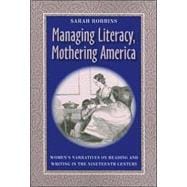
What is included with this book?
| Acknowledgments, | vii | ||
| Introduction: Domestic Literacy and Social Power, | 1 | (10) | |
| 1. Literacy and Literature in Nineteenth-Century America, | 11 | (27) | |
| 2. New England Authors and the Genre's Social Role, | 38 | (36) | |
| 3. Cross-Class Teaching and Domesticated Instruction, | 74 | (42) | |
| 4. Uncle Tom's Cabin as a Domestic Literacy Narrative, | 116 | (41) | |
| 5. Frances Harper's Literacy Program for Racial Uplift, | 157 | (37) | |
| 6. Missionary Motherhood, | 194 | (38) | |
| Conclusion: Jane Addams, Oprah Winfrey, and Schoolteachers' Stories, | 232 | (9) | |
| Notes, | 241 | (58) | |
| Selected Bibliography, | 299 | (20) | |
| Index, | 319 |
The New copy of this book will include any supplemental materials advertised. Please check the title of the book to determine if it should include any access cards, study guides, lab manuals, CDs, etc.
The Used, Rental and eBook copies of this book are not guaranteed to include any supplemental materials. Typically, only the book itself is included. This is true even if the title states it includes any access cards, study guides, lab manuals, CDs, etc.